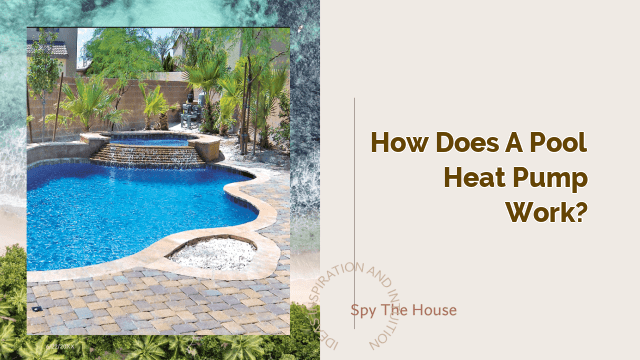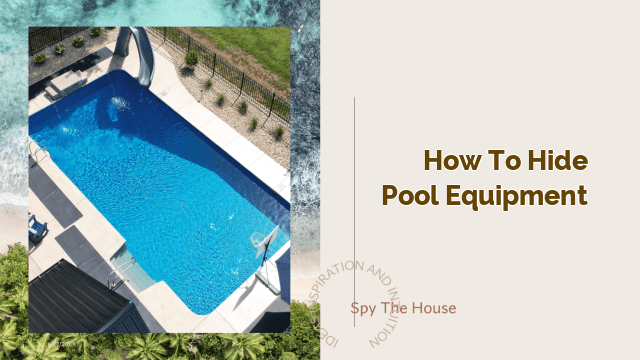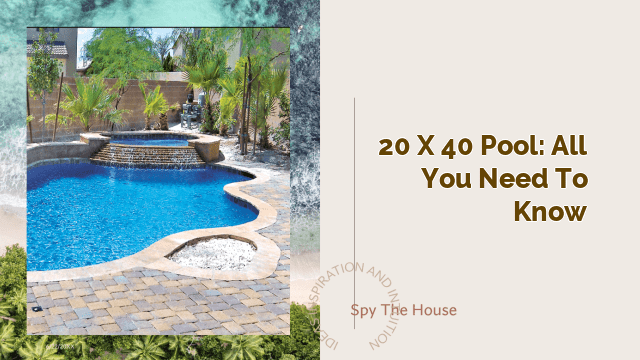How Does a Pool Heat Pump Work?
If you have a pool at home, you know how important it is to keep the water at a comfortable temperature. While there are various ways to heat a pool, a heat pump is one of the most efficient and cost-effective options. But how does a pool heat pump work? In this article, we’ll explain everything you need to know about pool heat pumps.
What is a Pool Heat Pump?
A pool heat pump is a device that uses electricity to transfer heat from the air outside to the water in your pool. Unlike traditional heaters that burn fuel to create heat, heat pumps use a refrigeration cycle to extract heat from the air and transfer it to the water.
How Does a Pool Heat Pump Work?
To understand how a pool heat pump works, let’s break down the process into four simple steps:
Step 1: Evaporation
The refrigerant inside the heat pump evaporates as it absorbs heat from the outside air. This process cools the air around the evaporator coil, which is then blown back into the environment by a fan.
Step 2: Compression
The vaporized refrigerant is then compressed by a compressor, which raises its temperature and pressure.
Step 3: Condensation
The hot, pressurized refrigerant then passes through a heat exchanger, where it releases its heat to the water in your pool. As the refrigerant cools down, it condenses back into a liquid.
Step 4: Expansion
The liquid refrigerant then passes through an expansion valve, which reduces its pressure and temperature. This allows it to evaporate again and start the cycle all over.
Types of Pool Heat Pumps
There are two main types of pool heat pumps: air-source and water-source.
Air-Source Heat Pumps
Air-source heat pumps are the most common type of pool heat pump. They work by extracting heat from the outside air and transferring it to the water in your pool. Air-source heat pumps are more efficient in warmer climates, as they rely on the ambient temperature to heat the pool.
Water-Source Heat Pumps
Water-source heat pumps, also known as geothermal heat pumps, work by extracting heat from a nearby water source, such as a lake or pond. They are more efficient than air-source heat pumps, as the water temperature is more consistent throughout the year. However, they require a large body of water nearby to work effectively.
Advantages of Pool Heat Pumps
There are several advantages to using a pool heat pump to heat your pool:🔹 Energy efficient: Pool heat pumps are more energy-efficient than traditional heaters, as they do not burn fuel to create heat.🔹 Cost-effective: While pool heat pumps may have a higher upfront cost than traditional heaters, they can save you money in the long run by reducing your energy bills.🔹 Environmentally friendly: Pool heat pumps do not produce any greenhouse gas emissions, making them a more eco-friendly option.
Disadvantages of Pool Heat Pumps
While there are many advantages to using a pool heat pump, there are also some disadvantages to consider:🔹 Initial cost: Pool heat pumps can be more expensive to purchase and install than traditional heaters.🔹 Temperature limitations: Pool heat pumps may struggle to heat your pool if the air temperature drops below a certain threshold, typically around 45°F.🔹 Size limitations: Pool heat pumps are not ideal for large pools, as they may not be powerful enough to heat the entire volume of water.
How to Size a Pool Heat Pump
When choosing a pool heat pump, it’s important to ensure that it is the right size for your pool. A heat pump that is too small will struggle to heat the water, while a heat pump that is too large will be inefficient and may fail prematurely. To size a pool heat pump, you’ll need to consider several factors, including:🔹 The size of your pool: The larger your pool, the more powerful your heat pump will need to be.🔹 The desired temperature rise: The greater the temperature rise required, the more powerful your heat pump will need to be.🔹 The average temperature in your area: If you live in a colder climate, you’ll need a more powerful heat pump to compensate for the lower ambient temperature.
Maintenance and Care
To ensure that your pool heat pump continues to function properly, it’s important to perform regular maintenance and care. This includes:🔹 Cleaning the air filter regularly to ensure optimal airflow.🔹 Checking the water chemistry regularly to ensure that the pH and chlorine levels are within the recommended range.🔹 Cleaning the evaporator and condenser coils to remove any debris or buildup.🔹 Scheduling regular maintenance with a professional technician to check for any issues or repairs.
People Also Ask: Answers to Common Questions About Pool Heat Pumps
How long does a pool heat pump last?
On average, a pool heat pump can last anywhere from 10 to 20 years with proper maintenance and care.
Can a pool heat pump be used year-round?
While pool heat pumps are designed to work year-round, they may struggle to heat your pool in extremely cold temperatures.
How much does it cost to run a pool heat pump?
The cost to run a pool heat pump will depend on several factors, including the size of your pool, the desired temperature rise, and the cost of electricity in your area. On average, you can expect to pay anywhere from $50 to $150 per month to operate a pool heat pump.
Can a pool heat pump be used with a saltwater pool?
Yes, pool heat pumps can be used with saltwater pools. However, it’s important to ensure that the heat exchanger is made from a material that is resistant to corrosion from saltwater.
Conclusion
A pool heat pump is an efficient and cost-effective way to keep your pool at a comfortable temperature. By understanding how a pool heat pump works and choosing the right size for your pool, you can enjoy a warm and inviting pool all season long.






